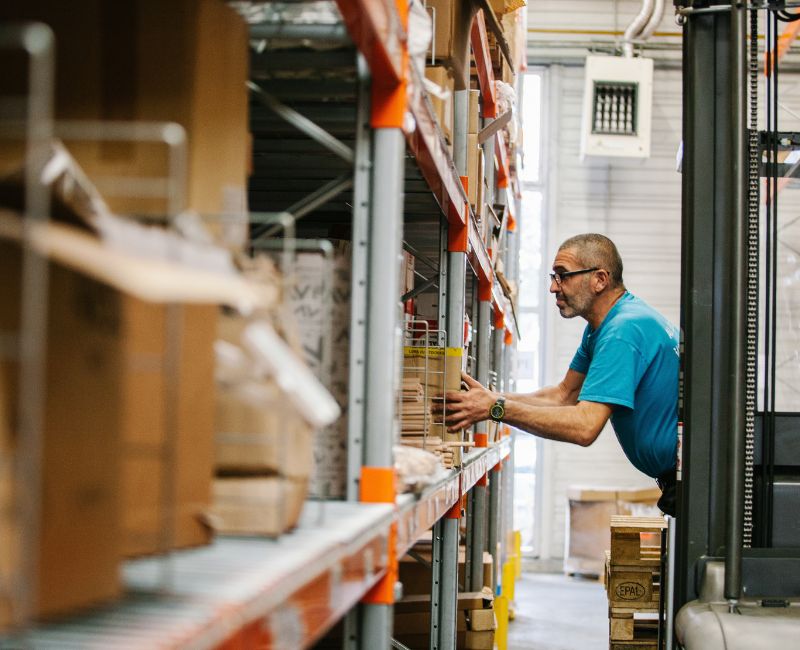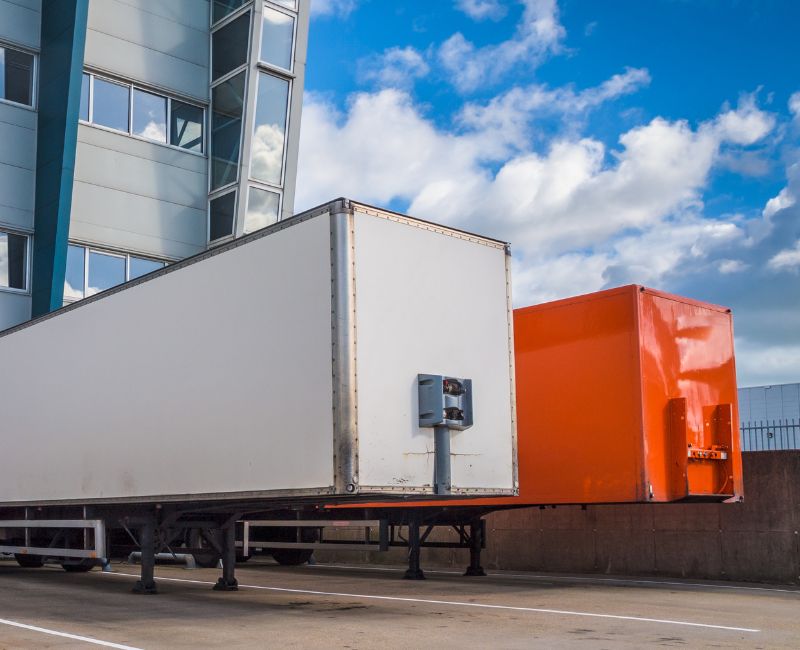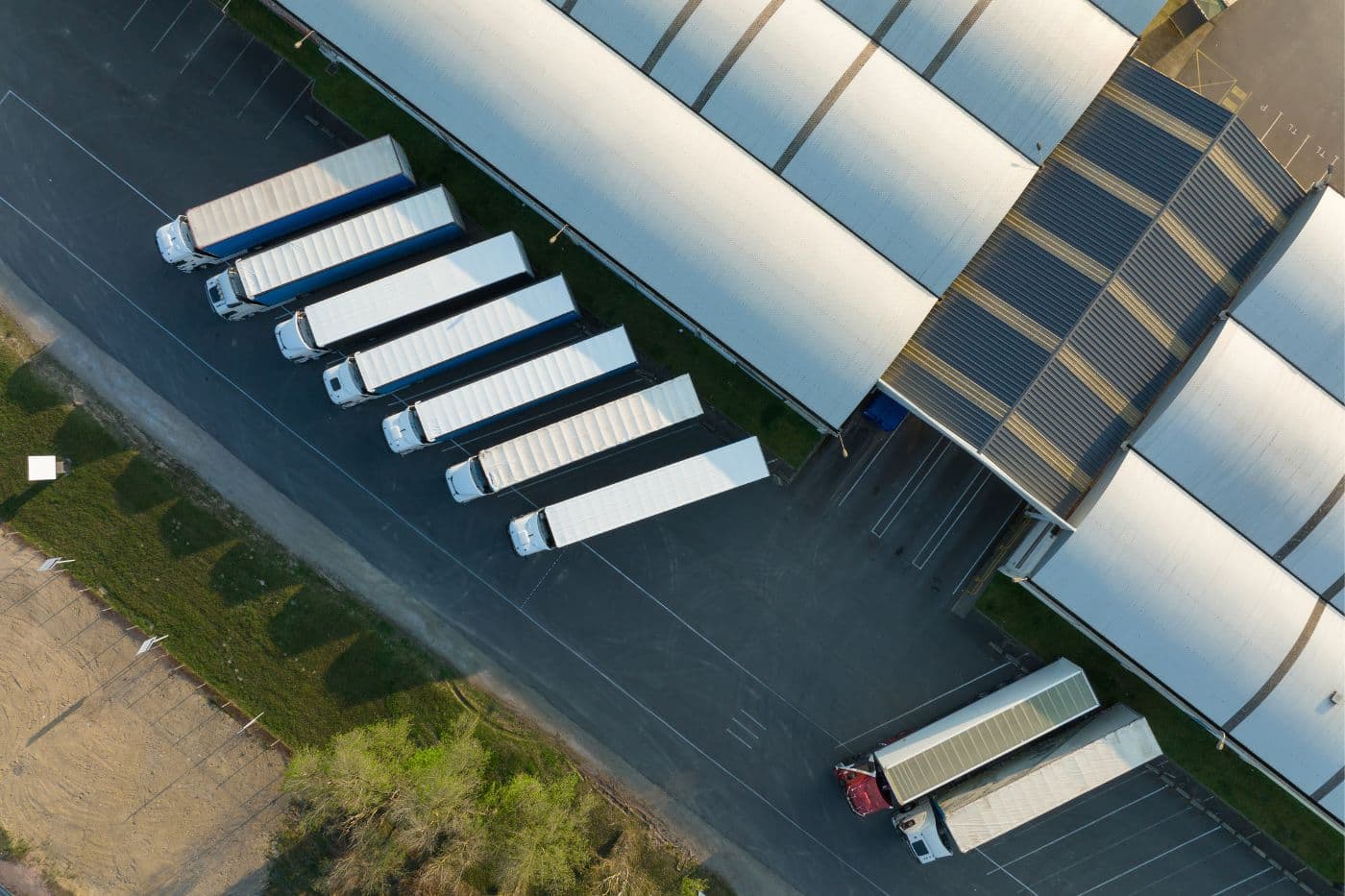Let’s navigate the lanes of 3PL transportation, decoding the essence of ‘LTL’—more than just an acronym, it’s the logistical magic that maximizes space, minimizes costs, and transforms your supply chain.
In this article, we delve into the basics of 3PL transportation, shedding light on one key aspect that reverberates across the logistics landscape: the significance of understanding the terminology that governs it.
What Does “LTL” Mean?
Less Than Truckload (LTL), in the context of logistics, refers to a mode of transportation wherein multiple shipments from different shippers are consolidated into a single truck for delivery. Understanding the essence of LTL is instrumental for business owners, as it provides a strategic avenue for optimizing resources and enhancing operational efficiency.

Key Characteristics of LTL Shipments
Size and Weight Considerations: LTL shipments are characterized by their relatively smaller size and weight when compared to full truckload shipments. This mode caters to shipments that do not utilize the entirety of a standard truck’s capacity. As a result, businesses with smaller quantities of goods benefit from the cost-effectiveness inherent in sharing transport space.
Consolidation of Shipments: At the heart of LTL logistics lies the principle of consolidation. Multiple shipments, often from different origins and bound for various destinations, are amalgamated into a single truck. This consolidation not only optimizes the use of available space but also facilitates economies of scale, contributing to cost savings for both shippers and 3PL providers.
The strategic utilization of LTL services hinges on a nuanced understanding of these characteristics. It empowers professionals to make informed decisions regarding the most efficient and cost-effective mode of transportation for their specific shipments, reinforcing the pivotal role that LTL plays in the broader landscape of 3PL transportation.
The Benefits of Less Than Truckload (LTL) Shipping
Efficiency in logistics is a strategic imperative within the domain of third-party logistics transportation. The utilization of Less Than Truckload (LTL) shipping as a core component of this strategy yields several distinct advantages, each contributing to the seamless orchestration of supply chain operations.

Cost Savings for Businesses
LTL shipping presents a compelling economic proposition for businesses of varying sizes. By allowing multiple shippers to share the cost of a single truck, LTL inherently reduces the financial burden associated with shipping smaller quantities. This collaborative approach to transportation translates into tangible cost savings, bolstering the fiscal efficiency of businesses.
Increased Flexibility in Shipping Options
The flexibility inherent in LTL transportation aligns seamlessly with the dynamic needs of 3PL services. Businesses benefit from the ability to ship smaller quantities as needed, without the constraints of committing to a full truckload. This adaptability not only accommodates fluctuations in demand but also enables 3PL providers to offer tailored shipping solutions, meeting the diverse requirements of their clientele with precision.
Environmental Impact and Sustainability
Beyond economic considerations, the environmentally conscious dimension of LTL logistics cannot be understated. By consolidating multiple shipments into a single truck, LTL inherently reduces the overall carbon footprint associated with transportation. This commitment to environmental sustainability aligns with the growing emphasis on corporate social responsibility, positioning 3PL providers as contributors to operational efficiency and environmental stewardship.
In essence, the advantages of integrating LTL into 3PL transportation extend beyond mere operational expediency. They encapsulate a strategic approach that harmonizes cost-effectiveness, flexibility, and sustainability—a trifecta that resonates with the evolving landscape of modern logistics.
Challenges in LTL Logistics
Navigating the intricacies of Less Than Truckload (LTL) logistics, while advantageous, is not without its challenges. Acknowledging and addressing these challenges proactively is integral to ensuring the seamless execution of transportation services.

Potential Delays and Transit Times: The nature of LTL shipments, often involving multiple stops for varied deliveries, introduces the potential for delays and extended transit times. This challenge is inherent to the consolidation model, as each additional stop contributes to the overall duration of the journey. Logistic professionals need to carefully factor in these variables when planning shipments to maintain transparency and manage client expectations.
Risk of Damage in Consolidated Shipments: The consolidation of diverse shipments within a single truck poses a challenge in terms of protecting goods from damage. The inherent mixing of freight types and the potential for shifting during transit heighten the risk of damage. Mitigating this risk requires meticulous packaging, secure loading practices, and effective communication between shippers and 3PL providers to ensure that each consignment is appropriately handled.
Strategies for Mitigating LTL Challenges
In navigating the challenges of LTL logistics, the key lies in a strategic blend of foresight, communication, and operational finesse. By implementing the following strategies, 3PLs can not only anticipate and mitigate challenges but also enhance the overall reliability and resilience of their LTL services.
Advanced Planning and Scheduling: Mitigating potential delays necessitates a meticulous approach to planning and scheduling. By leveraging advanced forecasting tools and optimizing routes, logistics professionals can minimize the impact of delays and enhance overall efficiency.
Enhanced Packaging Protocols: To address the risk of damage, implementing robust packaging protocols is paramount. Shippers and 3PL providers should collaborate to establish guidelines for secure packaging that can withstand the rigors of consolidation and transportation.
Real-time Tracking and Communication: The deployment of real-time tracking technology facilitates constant communication between all stakeholders. This transparency enables proactive problem-solving, allowing for swift responses to unexpected challenges during transit.
LTL Logistics Best Practices
Mastering the intricacies of Less Than Truckload logistics necessitates the adoption of refined best practices. An expert 3PL provider will utilize these practices to enhance operational efficiency and contribute to the seamless orchestration of supply chain processes.

Efficient Order Consolidation Techniques
Leveraging efficient order consolidation techniques is pivotal for maximizing the benefits of LTL logistics. This involves strategic grouping of shipments based on factors such as destination proximity, delivery timelines, and compatible cargo types. By consolidating orders judiciously, 3PL providers can optimize truck capacity, minimize transit times, and ultimately reduce costs for both themselves and their clients. Let’s take a closer look:
Dynamic Routing and Scheduling: Employing advanced routing and scheduling algorithms enables 3PL providers to dynamically adapt to changing shipment volumes and destinations. This agility ensures that orders are consolidated in a way that minimizes detours, reduces empty space, and optimizes the overall efficiency of the transportation network.
Cargo Compatibility: Efficient consolidation goes beyond destination proximity; it also considers the compatibility of different cargo types. Grouping shipments with similar handling requirements or environmental sensitivities ensures that each item is treated appropriately during transit, reducing the risk of damage and streamlining loading and unloading processes.
Data-Driven Decision-Making: Harnessing the power of data analytics allows logistics professionals to make informed decisions about order consolidation. Analyzing historical shipping data, seasonal trends, and customer demand patterns helps optimize the grouping of orders, contributing to better load utilization and increased overall efficiency.
Collaborative Planning with Shippers: Engaging in open communication and collaborative planning with shippers is instrumental in achieving efficient order consolidation. By understanding their shipment schedules, volume fluctuations, and specific requirements, 3PL providers can tailor their consolidation strategies to align with the unique needs of each client.
Real-time Tracking and Visibility
Real-time tracking and visibility technologies serve as indispensable tools in the LTL logistics toolkit. Integrating these technologies into operational workflows enhances transparency across the supply chain. Clients can monitor the status and location of their shipments in real-time, fostering proactive decision-making and allowing for swift responses to any unforeseen challenges. Here’s an in-depth look at the key components of real-time tracking and visibility:
GPS and Telematics Integration: Integrating GPS and telematics technologies into the transportation infrastructure provides real-time location tracking for every shipment. This not only allows for accurate estimated time of arrival (ETA) predictions but also enables logistics professionals to reroute shipments dynamically in response to unexpected events, optimizing delivery schedules.
Integration with ERP Systems: Seamless integration of real-time tracking data with Enterprise Resource Planning (ERP) systems enhances overall visibility across the supply chain. This integration ensures that all stakeholders, from shippers to end customers, have access to up-to-date information on the status and location of their shipments, fostering informed decision-making.
Automated Alerts and Notifications: Implementing automated alert systems based on predefined triggers, such as delays or deviations from the planned route, enhances proactive problem-solving. This real-time information empowers logistics professionals to address issues swiftly, mitigating the impact of disruptions and providing clients with accurate and timely updates.
Customer-Facing Tracking Portals: Offering customers access to user-friendly tracking portals enhances the overall customer experience. These portals provide a direct line of sight into the journey of their shipments, increasing customer satisfaction and trust. Providing this level of transparency is especially crucial in industries where visibility into the supply chain is a key customer expectation.
Collaborative Partnerships in the Supply Chain
Collaborative partnerships within the supply chain ecosystem are a cornerstone of effective LTL logistics. 3PL providers should build strong relationships with shippers, carriers, and other stakeholders to foster seamless communication and coordination. This collaborative ethos extends beyond transactional engagements, enabling 3PL providers to anticipate challenges, share insights, and collectively optimize the entire supply chain for mutual benefit. Here’s a deeper exploration of the elements that characterize effective collaborations within the supply chain:
Open Communication Channels: Establishing open and transparent communication channels is fundamental to collaborative partnerships. 3PL providers, shippers, carriers, and other stakeholders should communicate regularly to share insights, discuss challenges, and coordinate strategies for mutual benefit. This free flow of information ensures that everyone is aligned with common goals.
Shared Data Platforms: Collaboration is significantly enhanced when all parties have access to shared data platforms. This shared infrastructure allows for real-time information exchange, fostering a collaborative environment where decision-making is based on a unified and accurate understanding of the supply chain dynamics.
Joint Planning and Strategy Development: Collaborative partnerships extend beyond transactional engagements; they involve joint planning and strategy development. By collaborating on long-term goals, market trends, and industry developments, partners can proactively address challenges and capitalize on opportunities, creating a more resilient and adaptive supply chain.
Mutual Performance Metrics: Establishing mutual performance metrics ensures accountability and continuous improvement within the partnership. By defining key performance indicators (KPIs) collaboratively, all parties can work towards shared goals, measure success, and identify areas for optimization.
The efficacy of LTL logistics in the realm of 3PL transportation is contingent upon the implementation of these best practices. From strategic order consolidation to real-time tracking and fostering collaborative partnerships, these practices form a cohesive framework that aligns with the evolving demands of modern logistics.
Navigating Efficiency in Transportation with LTL Solutions
In the logistics industry, the significance of Less Than Truckload logistics emerges as a dynamic force shaping operational efficiency and strategic success. The careful integration of LTL practices into the broader spectrum of 3PL services offers a nuanced approach to addressing the challenges and leveraging the advantages inherent in modern supply chain management.
In 3PL transportation, where precision and adaptability reign supreme, the strategic incorporation of LTL logistics serves as a beacon, guiding professionals toward a future where efficiency and collaboration converge for unparalleled success.
With a commitment to efficiency, transparency, and collaborative excellence, Hanzo Logistics leverages our expertise to navigate the complexities of modern supply chains. Our comprehensive suite of transportation services is designed to not only meet but exceed the evolving needs of our clients, from LTL shipping to cold chain logistics. Contact our team today to explore how our tailored solutions and industry-leading expertise can elevate your supply chain efficiency.



